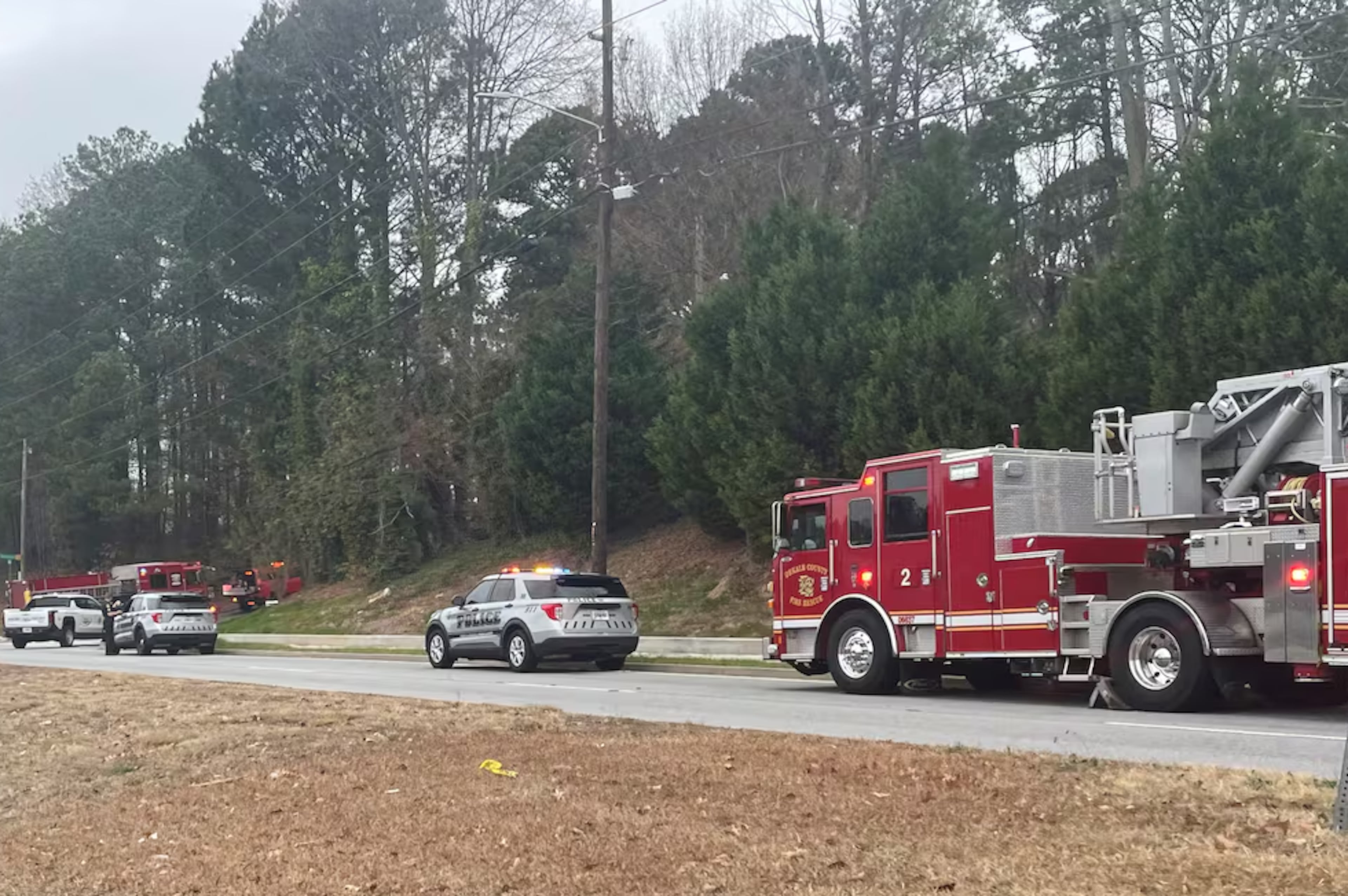Georgia at high risk of militia threat around elections, new report says

A new report by a group that typically monitors political violence abroad named Georgia as one of five high-risk states for far-right militia activity around the November election.
The report, co-authored by the Armed Conflict Location & Event Data Project and Atlanta-based Militia Watch, warned that armed extremist groups “pose a serious threat to the safety and security of American voters." The report cites election concerns, fears of a left wing “coup” and anti-coronavirus lockdown sentiments as drivers of militia activity leading up to election.
Along with Georgia, the report lists Michigan, Pennsylvania, Wisconsin, and Oregon as states at the highest risk for militia activity, although researchers said they did not have specific inside information on what such groups might be planning or precisely where such activity could take place.
Hampton Stall, founder of the blog Militia Watch, said he does not necessarily believe that militias have grown in size during the pandemic and the runup to the election, but he said their rhetoric has become “more aggravated, more energized” and centered on the political fortunes of President Donald Trump.
The report touched on militia groups like the Three Percenters and Oath Keepers, but also brawlers like the Proud Boys and loose movements like the Boogaloo Bois who advocate for civil war. In recent months, more members of such groups have come out to counter Black Lives Matter street protests, which Stall said has created networking opportunities.
“It has become very normal for militias to show up at protests," he said. “That’s a really powerful effect of this summer.”
This summer, armed groups have shown up to protests across the nation. In Kenosha, Wisc., a 17-year-old was arrested in August for allegedly killing two protesters and wounding another. Later that same month, in Portland, Ore., a man associated with a right-wing group was shot and killed by a leftist protester. This month, police arrested 13 men in a militia-led plot to kidnap Michigan Gov. Gretchen Whitmer, who has angered some on the far-right with her approach to the pandemic and criticism of Trump.
In Georgia, far-right militias staged a demonstration in August in the city of Stone Mountain where they fought and shouted at left-wing counter demonstrators for hours before police intervened. That demonstration was in answer to a pop-up protest by an all-black militia that marched on Stone Mountain Park in July.
No specific threat
For the past decade, ACLED has gathered data on armed conflict and political violence around the globe, but this year the organization started tracking militia activity in the United States.
“With the election coming up, we were really interested in doing a spotlight on the U.S. context as well," said Roudabeh Kishi, director of research at ACLED. Kishi said there are similarities to how militias operate here and abroad in their attempts to exert political influence by associating with supportive political elites.
She said the purpose of their work was to understand and build awareness about the potential for militia violence. But she said that does not mean voters should be afraid to show up at the polls.
“We don’t have reason to believe that groups will show up on election day at a specific election site and harm people," she said.
Mark Pitcavage, a senior research fellow at the Anti-Defamation League’s Center on Extremism and a militia expert, said it’s impossible to predict the future, but he said militia groups, as a whole, are not planning violence at the polls. Instead, they are more concentrated on paranoid conspiracy theories — some stoked by the president — that leftists are planning to “steal” the election.
“They want to monitor things, and not intimidate people, to catch shenanigans on the left,” he said. “George Soros in disguise or whatever.”
But intimidating situations is still a far cry from violent attacks, he said. Without more specific intelligence, which isn’t included as part of the report, Pitcavage said it’s hard to know what to take from the report.
State patrol, GBI ready
Georgia is home to approximately 20 private militia groups, some of which are more active than others. One group — the Georgia III% Martyrs — showed up as private security for Republican Sen. Kelly Loeffler and congressional candidate Marjorie Taylor Greene at a campaign event in Ringgold last month. In a later interview, the group’s leader told The Atlanta Journal-Constitution that they were waiting for instructions from Trump and were stockpiling ammunition for a coming civil war.
Last week on his YouTube channel, Georgia Security Force III% leader Chris Hill posted a brief teaser video of himself firing an assault rifle.
“These next 45 days are going to be packed with violence,” he said in a voiceover.
Georgia Department of Public Safety spokesperson Lt. Col. Stephanie Stallings acknowledged the heightened concern over potential disruptions in the election.
“A primary goal of DPS is the safety of those exercising their constitutional rights, whether it be during the election process or engaging in First Amendment right activities,” she said. “DPS has prevention and response measures in place for concerns of extremist violence.”
Stallings did not detail what those measures entail, citing security and safety concerns.
Nelly Miles, spokesperson for the GBI, said her agency takes threats from militia and other groups seriously and agents are ready to investigate when credible threats arise.
“The GBI frequently works with our federal, state, and local law enforcement partners when making assessments of information and conducting investigations,” she said.
Both Stall and Kishi said Georgia is an attractive state for militia activity because of its unsettled social and political environment, including tight elections for president and two Senate seats and political disagreements over the response to the coronavirus pandemic.



